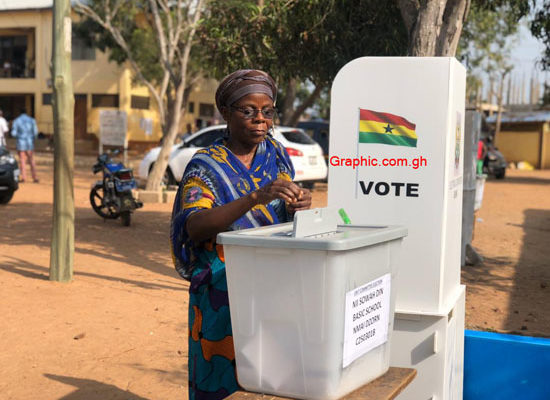The Electoral Commission (EC) has disclosed that it will revert to the manual process of transmitting results from all the collation centres to the national headquarters.
This implies that unlike the 2016 elections where the electronic system was used alongside the existing manual system to have parallel modes that transmitted results concurrently, there would be only a single mode of transmitting results this year.
According to a Deputy Chair at the Commission in charge of Corporate Services, Dr Eric Bossman Asare, the manual system was a “standard one with no problem”.
He indicated that the EC would make sure all those in charge of the various polling stations “will do their work well.”
During the previous national elections, the then Commission, under the leadership of Charlotte Osei, used both manual and electronic processes to transmit the results, but the electronic system was later suspended.
The then Commission explained that it was “compromised,” making the EC request Returning Officers at the collation centres to stop using it and revert to the manual system.
Meanwhile, with about six weeks to this year’s elections, the current Commission has reiterated its commitment to ensure that no voter, including those in hard-to-reach areas,would be disenfranchised.
“Even if it requires going to the communities with a helicopter, by boat or whatever means that will take us to these remote places, and if it means we should be at the place three days before time, we will make provisions for that,” he said.
Regarding voting and counting of results in the evenings, Dr Bossman Asare said the Commission had procured rechargeable lamps for all the centres, especially communities with power difficulties.
“For the voting, we will not require so much electricity to charge the kits that are being used. We, however, recognize the use of electricity when it is time for counting, and the EC will provide all polling stations with rechargeable lamps,” he said.
“In terms of the number of lamps, we will cover all polling stations, especially where electricity will be a challenge. We have budgeted ahead to make sure every part of the country is covered,even if there is no electricity-related problems,” he added.
Touching on the printing of ballot papers, the Deputy Commissioner told the Ghanaian Times that all the political parties had received letters to send representatives to the various printing houses to supervise the process.
The printing of ballot papers would end on November 20, and would have the seal of all the political parties to ensure they were secured, he said, adding that the candidates would have their faces on the papers, which is a “standard one”.
Concerning security provisions, he said, “We are working with Election Security Task Force under the leadership of the Ghana Police Service, to ensure that every polling station have their own intelligence and know the flashpoints that would require much attention.”
Dr Bossman Asare also reiterated the commitment of the Commission to organise a free, fair, and transparent election, adding, it would intensify public education on the voting process to reduce the number of rejected ballots, if not to eliminate it.
Source: www.graphic.com.gh


